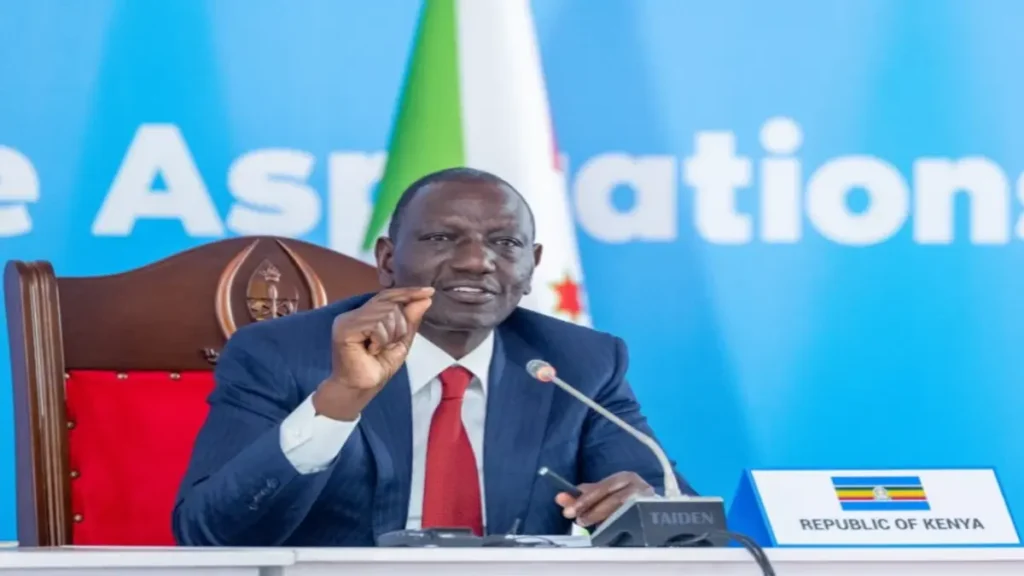President William Ruto has categorically denied allegations that county governors were coerced into signing medical equipment leasing contracts with the Social Health Authority (SHA). This assertion was made during his address at the Kilifi International Investment Conference on December 5, 2024. Ruto emphasized that the leasing agreements are entirely voluntary and comply with established legal procurement processes.

The controversy surrounding the SHA leasing program began when Mutahi Kahiga, the Vice Chair of the Council of Governors (COG), claimed that many counties felt pressured to sign the agreements. Kahiga expressed concerns that financial constraints pushed counties to comply with SHA’s demands for essential medical equipment. He stated that without these agreements, counties would struggle to provide adequate healthcare services to their residents.
In his response, Ruto firmly rejected these claims, stating, “You have to be a fool to be forced to sign the wrong thing.” He reiterated that counties have the autonomy to choose their suppliers and are not obligated to enter into contracts with specific vendors. Ruto clarified that there are seven approved suppliers from which counties can lease medical equipment based on their unique needs and financial capabilities.
The issue has drawn attention from various senators who have raised concerns about the SHA leasing program. Homa Bay Senator Moses Kajwang questioned the program’s value for money and its implications for devolution. He argued that counties must ensure they are making sound financial decisions when entering into such agreements. Senator Okiya Omtatah also challenged the legality of the contracts, asking whether proper legal counsel was sought before signing.
Kahiga acknowledged that there are significant challenges in implementing the leasing agreement. He noted that while 34 counties have signed the contract, there is uncertainty about its long-term viability. Many governors worry whether this program will adequately meet healthcare needs or provide real value for money.
Ruto emphasized that health is a devolved function in Kenya and that counties should feel empowered to make informed decisions regarding their healthcare procurement processes. He stated, “The leasing of equipment was carried out through a procurement process between counties and the Ministry of Health.” This statement aimed to clarify any misconceptions regarding how the SHA operates.
Furthermore, Ruto explained that county-owned hospitals can choose to lease equipment from any of the seven approved suppliers. This flexibility allows counties to make decisions based on their specific requirements and financial capacities. He reassured governors that they are not bound by any contract they do not wish to sign.
Despite Ruto’s reassurances, ongoing discussions among governors and senators reveal a complex landscape of healthcare procurement in Kenya. The success of this initiative will depend on its implementation and ability to meet healthcare demands effectively. The tension between county governments and national leadership highlights a broader issue regarding resource allocation and management in Kenya’s healthcare system.
While President Ruto maintains that no coercion occurred in signing SHA contracts, concerns remain among county governors and senators about the program’s sustainability and effectiveness. The future of healthcare procurement in Kenya hinges on transparency, accountability, and collaboration among all stakeholders involved.



















